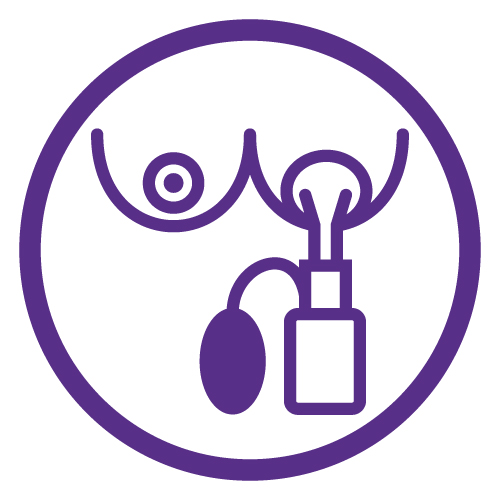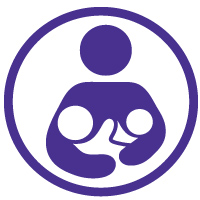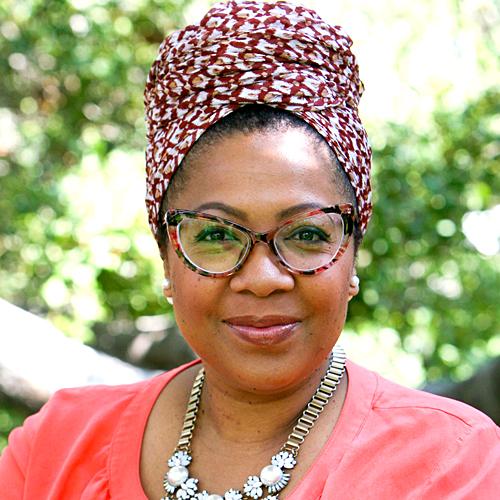 Lactation & Breastfeeding Online Course(s) & Continuing Education
Lactation & Breastfeeding Online Course(s) & Continuing Education
Access the latest clinical skills and research for Lactation & Breastfeeding for professional training. These Lactation & Breastfeeding online courses provide practice-changing skills and valuable perspectives from leading global experts. This Lactation & Breastfeeding education has been accredited for a variety of CEUs / CERPs and can be accessed on-demand, at your own pace.
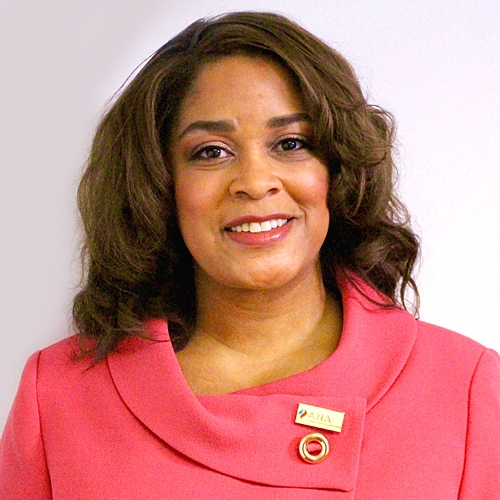
Balancing Beneficence, and Prevention of Harm When Caring for Pregnant Women with Substance Use Disorder

Liz Stokes JD, MA, RN, is the Director of the American Nurses Association Center for Ethics and Human Rights. She completed her BSN at the University of Virginia and worked several years as a critical care nurse. Liz received her Juris Doctor from the University of Richmond and worked as a Consultant for the D.C. Board of Nursing interpreting and conferring professional ethics provisions in nursing. She recently completed her Masters in Bioethics from Loyola University Chicago. Her leadership is also demonstrated through various charitable roles in the health and legal communities. She is a member of The American Association of Nurse Attorneys and serves on the board of the American Society for Bioethics and Humanities Affinity Group for Nursing. Liz also serves as an Associate Editor for the Journal of Bioethical Inquiry and is an active volunteer with the District of Columbia Bar Association. Liz is currently an American Academy of Nursing Jonas Health Policy Scholar.
It is well established that the care of pregnant or postpartum women with substance use disorder(SUD) can be a source of work-related stress for clinicians (Maguire, Webb, Passmore, & Cline, 2012). Providers must balance the ethical principle of beneficence, or preventing harm, with fidelity, which requires fairness, truthfulness, and advocacy (ANA, 2015). This can be a challenge for clinician who are in positions where there is a mandatory requirement to report a pregnant woman’s substance use. In these situations, clinicians must be compassionate, truthful, forthcoming and transparent when communicating obligations with patients to maintain trust in the patient-provider relationship. This discussion will provide recommendations for compassionate care for women with SUD including education on mental health, SUD, interpersonal violence, and treatment options (Hill, 2013). As patient advocates, clinicians can be a strong voice for pregnant women with substance use disorder and their unborn babies (Ferszt, Hickey, & Seleyman, 2013).

View Details / Enroll
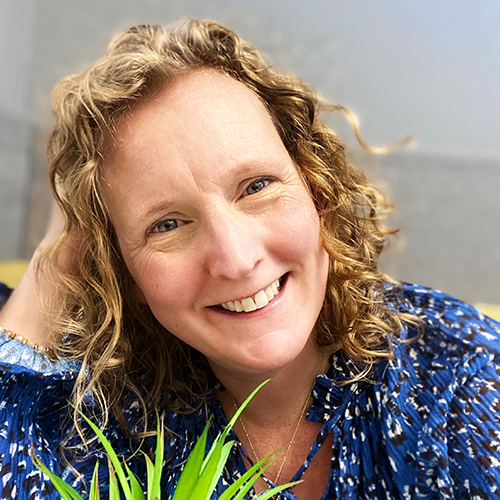
Being Mindful: Case Studies of Mindfulness Tools in Clinical Lactation Practice

Anna Le Grange is an International Board Certified Lactation Consultant, Registered Pediatric Nurse, Mindfulness teacher and Author. She has worked with new families for over 20 years in a variety of clinical roles. Anna brings her passion for psychology, neuroscience and mindfulness into her lactation support work and facilitates other professionals to incorporate emotional well-being tools into their own lactation practice. Mother to 3 children, Anna breastfed her 3rd child following breast reduction surgery and experienced first-hand, the emotional challenges that so often relate to infant feeding complexities. She used her personal experiences alongside mindfulness and lactation knowledge, to create a toolbox of techniques for breastfeeding families, which she includes in her courses and book, The Mindful Breastfeeding Book. Anna believes whole-heartedly in prioritizing calm and connection within our breastfeeding support practices, both for our clients and ourselves. Anna is currently studying for a MSc in Positive Psychology at Buckingham New University and has spoken at various events including the Gold Lactation, ILactation Conference and Nurturing The Future.
Topic: Being Mindful: Case Studies of Mindfulness Tools in Clinical Lactation Practice - [View Abstract]
Topic: Breast/Chestfeeding After Breast Reduction - [View Abstract]
Topic: Working With Anxious Parents and Fussy Babies - [View Abstract]
Bringing self-awareness and self-compassion into our work as healthcare professionals and lactation supporters, enables us to thrive in the work that we do and offer a higher quality and more ethical service to struggling clients. The case studies shared in this presentation offer a unique look at how mindfulness and self-awareness can be used to help navigate the complexities of each case. Learn more about the ways that stress in the feeding parent can impact lactation, how to identify the emotional considerations of a client’s situation, mindful breastfeeding tools and ways that providers can meet their own needs while working on challenging cases.
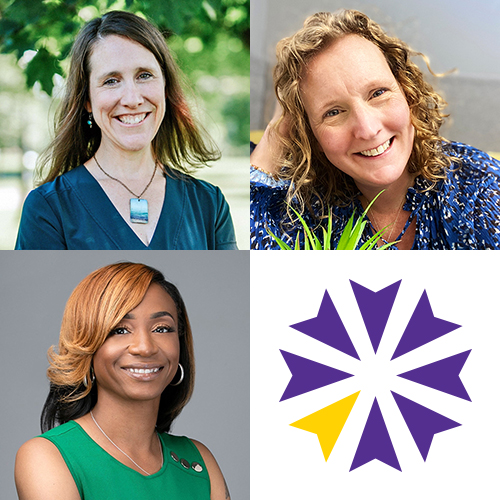
View Details / Enroll

Beyond Fenugreek: An Individualized Approach to Dietary and Herbal Galactagogues

Melissa Cole, MS, IBCLC, RLC is a board certified lactation consultant, neonatal oral-motor assessment professional, and clinical herbalist in private practice. Melissa has been passionate about providing comprehensive, holistic lactation support and improving the level of clinical lactation skills for health professionals. She enjoys teaching, researching and writing about wellness and lactation-related topics. Melissa holds a bachelor of science degree in maternal child health and lactation consulting and her master’s work is in therapeutic, clinical herbalism. Melissa actively conducts research and collaborates with several lactation and health care professional associations. Before pursuing her current path, Melissa’s background was in education and cultural arts, which has served her well in her work as a lactation consultant and healthcare educator. She loves living, working and playing in the beautiful Pacific Northwest with her 3 children.
Topic: Beyond Fenugreek: An Individualized Approach to Dietary and Herbal Galactagogues - [View Abstract]
Topic: Beyond the Basics of Latch: Support Strategies for Helping Babies when the Basics Aren’t Enough - [View Abstract]
Topic: Common Infant Digestive Health Concerns and Useful Support Strategies - [View Abstract]
Topic: Connection and Care: Virtual Support for Tongue-Tied Infants - [View Abstract]
Topic: Feeding is Movement: Activities for Supporting Optimal Infant Oral Function - [View Abstract]
Topic: Infant Gut Health: Common Concerns and Useful Support Strategies - [View Abstract]
Topic: Infant Oral Assessment: Exploring Anatomy and Function Beyond the Frenulum - [View Abstract]
Topic: Low Milk Production Detective Work: Assessment and Care Plan Considerations - [View Abstract]
Topic: Nature’s Nurturers: Plant Medicine for Perinatal Mental Health - [View Abstract]
Topic: New Thoughts on Infant Pre and Post-Frenotomy Care - [View Abstract]
Topic: Placenta Medicine as a Galactogogue: Tradition or Trend? - [View Abstract]
Topic: Thinking Critically About the Use of Clinical Lactation Tools - [View Abstract]
Topic: Will It Hurt? Frenotomy Aftercare Strategies to Optimize Healing Outcomes for the Newborn - [View Abstract]
While some clinicians might roll their eyes when ‘lactation cookies’ are mentioned we know foods and herbs have long been used to nourish the postpartum parent and enhance lactation. Some topics this talk aims to cover: Does nourishment matter when it comes to breastmilk quality or quantity? How can we approach galactogogues for lactating mothers in an individualized way? How can clinicians evaluate evidence and determine safety regarding galactogogues? We know that parent coping with milk supply concerns are often desperate to ‘try anything’. Clinicians have an important role in helping families understand the risks and benefits of galactogogues. By helping parents identify resources and information around foods and herbs, we can help empower them to make informed choices.

Beyond the Basics of Latch: Support Strategies for Helping Babies when the Basics Aren’t Enough

Melissa Cole, MS, IBCLC, RLC is a board certified lactation consultant, neonatal oral-motor assessment professional, and clinical herbalist in private practice. Melissa has been passionate about providing comprehensive, holistic lactation support and improving the level of clinical lactation skills for health professionals. She enjoys teaching, researching and writing about wellness and lactation-related topics. Melissa holds a bachelor of science degree in maternal child health and lactation consulting and her master’s work is in therapeutic, clinical herbalism. Melissa actively conducts research and collaborates with several lactation and health care professional associations. Before pursuing her current path, Melissa’s background was in education and cultural arts, which has served her well in her work as a lactation consultant and healthcare educator. She loves living, working and playing in the beautiful Pacific Northwest with her 3 children.
Topic: Beyond Fenugreek: An Individualized Approach to Dietary and Herbal Galactagogues - [View Abstract]
Topic: Beyond the Basics of Latch: Support Strategies for Helping Babies when the Basics Aren’t Enough - [View Abstract]
Topic: Common Infant Digestive Health Concerns and Useful Support Strategies - [View Abstract]
Topic: Connection and Care: Virtual Support for Tongue-Tied Infants - [View Abstract]
Topic: Feeding is Movement: Activities for Supporting Optimal Infant Oral Function - [View Abstract]
Topic: Infant Gut Health: Common Concerns and Useful Support Strategies - [View Abstract]
Topic: Infant Oral Assessment: Exploring Anatomy and Function Beyond the Frenulum - [View Abstract]
Topic: Low Milk Production Detective Work: Assessment and Care Plan Considerations - [View Abstract]
Topic: Nature’s Nurturers: Plant Medicine for Perinatal Mental Health - [View Abstract]
Topic: New Thoughts on Infant Pre and Post-Frenotomy Care - [View Abstract]
Topic: Placenta Medicine as a Galactogogue: Tradition or Trend? - [View Abstract]
Topic: Thinking Critically About the Use of Clinical Lactation Tools - [View Abstract]
Topic: Will It Hurt? Frenotomy Aftercare Strategies to Optimize Healing Outcomes for the Newborn - [View Abstract]
In a perfect world, every baby would latch beautifully right after delivery and breastfeed happily ever after. In reality what we often see is that most moms and babies need a little help to get breastfeeding off to a good start. Many dyads need a lot of help. And a few mother/baby pairs need a miracle to breastfeed successfully. How can we best help those tough cases? There are many reasons babies struggle to latch and feed well. Some issues may include structural issues, physical discomfort, respiratory concerns, medical issues, digestive issues, poor feeding tool choices, prematurity, etc. Many providers are frustrated when they are unable to help a dyad latch and feed successfully. This presentation will cover some reasons why babies struggle to latch and breastfeed well. We will go over cases that portray challenging situations and the assessment techniques and care plan strategies that helped. This session is designed to help providers implement critical thinking skills in order to think outside the box when it comes to difficult cases.

View Details / Enroll

Beyond the Letdown: Dysphoric Milk Ejection Reflex and the Breastfeeding Mother

Alia Macrina Heise has worked in the field of lactation since 2004. She is considered the international authority on the topic of dysphoric milk ejection reflex (D-MER). She has been the forerunner in identifying, naming and investigating the anomaly of dysphoria with milk ejection reflex since 2007. She has spoken on the subject at many notable conferences, including GOLD, has given several interviews on the subject for both print and podcasts and has been published through her work on a case study about D-MER for The International Breastfeeding Journal. In 2017 she released the first book on the subject. Alia's passion and enthusiasm for the topic of D-MER are evident in the energy that she demonstrates in her presentations and the novelty of new information on a subject that is not yet well known or understood by many makes for an engaging and interesting presentation. Alia is not only a former sufferer of the lactation anomaly herself, she is also the webmaster of d-mer.org and she works closely with mothers around the world who are suffering with the condition in order to support them and to better understand the variance of the experience. She is also in frequent contact with other professionals in order to spread awareness and to support further research and investigation into the subject. Outside of her work with D-MER, she is also in private practice as an IBCLC in the Finger Lakes region of New York. She lives in a small rural town where she enjoys country living with her three children.
Dysphoric milk ejection reflex (D-MER), is not a new phenomenon. In the past, it was almost like Voldemort, the Problem That Must Not Be Named. But for over 10 years now, it has had a name and been brought into daylight. Though still not widely known or understood by many, the hypothesis of the mechanism and possible sustainable solutions are becoming better documented all the time. D-MER has been the subject of two case studies, one case series, and a qualitative research study. Two other studies as also in process at this time.
Mothers with D-MER feel, as a reflexive response with every single milk release, a wave of negative emotions ranging (depending on severity) from homesickness to hopelessness and despair, perhaps even anger and suicidal ideation. These emotions dissipate shortly after milk release and reoccur with the start of every MER, whether with breastfeeding, expressing or with spontaneous releases. Many sufferers keep the problem to themselves preferring the weaning of their baby to being incorrectly labeled as depressed or victims of abuse. Upon experiencing D-MER mothers are initially convinced the problem is physiological and not psychological, and they are correct.
As both a lactation consultant and a sufferer of D-MER, I first named and identified D-MER over 10 years ago. Now, through the case studies that have been done, collaboration with other medical and breastfeeding care providers, and the collection of information from the anecdotal reports from over 1,000 mothers, there is now a foundation of understanding of D-MER. Though the evidence base for D-MER is still mainly unestablished at this time, there are many professionals always working to bring evidenced-based information to the study of human lactation. This is exactly what the slow work and understanding of D-MER is about; the process of bringing new information into the light for further research and understanding.
In the PowerPoint presentation that I have to present, I discuss how D-MER presents, its tell-tale manifestation, and its spectrum and intensities. The presentation also explains the currently proposed mechanism of the MER anomaly, how health care providers can identify a mother it D-MER and how to help and support mothers with the condition.

Beyond the Rooting Reflex: The Role of Primitive Reflexes in Lactation

Gretchen Becker Crabb is an Occupational Therapist, Licensed Professional Counselor, and Endorsed Infant Mental Health Therapist. She is also a Certified Lactation Counselor, La Leche League Leader, and Brazleton Newborn Observation (NBO) trainer.
Gretchen’s passion is rooted in fostering lifelong relationships and connection through co-regulation in pregnancy and beyond. Her unique approach to lactation support and therapy is rooted in culturally attuned sensory, somatic, and trauma-informed mental health techniques.
Gretchen owns and operates a private practice in Madison, Wisconsin. For 21 years, she has provided developmental, trauma, feeding, and attachment support for tiny humans and their caregivers in birth to three, preschool, private practice, and peer group settings. Gretchen is an international speaker, reflective supervisor, and infant mental health consultant. In these roles, she offers compassionate, experiential, and reflective holding spaces for professionals. She is a proud United States Air Force spouse and mother of three boys.
Topic: Infant Mental Health: What Does It Look Like in Practice? - [View Abstract]
Topic: Scent-Sational Connections: The Role of Olfaction in Development - [View Abstract]
Topic: Sensory Processing and Breast/Bodyfeeding: Using Co-Regulation to Support the Feeding Relationship - [View Abstract]
Topic: Vestibular Processing: Using the Sixth Sense to Support Lactation and Parent/Infant Relationships - [View Abstract]
Primitive reflexes play an instrumental role in the birth process and lactation, motor, regulatory, and social emotional skill development. Reflexes not only serve to help us develop a sense of self, but they also assist to promote meaningful interactions with other people and the world around us. In this presentation, we explore how the integration of sensory processing and primitive reflexes support parents and infants in lactation. We will also look at how the function of these reflexes can impact learning, mental health and regulation skills in infants, children, and adults. Experiential activities will be used to enhance participants understanding of each reflex and experiment with supportive strategies to use with families.

View Details / Enroll


Dr. Rice has been working at the intersection of education and health for social justice and public good. She is the former Executive Director of the Breastfeeding Coalition of Oregon. Currently, Dr. Rice works on organizational development, communication, marketing, public policy and community engagement to advance health equity through access to donor human milk. A national thought leader, she is deeply engaged in convening conversations about the importance of maintaining women’s biological integrity, advancing feminist approaches to human milk banking and at the same time, encouraging capacity building for human milk derived therapies improving health outcomes for the most vulnerable babies.
Most recently Dr. Rice provided consulting as a Policy Associate with Mothers' Milk Bank of San Jose and has provided strategy and policy consulting for the Human Milk Banking Association of North America (HMBANA). Marion holds a doctorate in Education Leadership and is an Internationally Board Certified Lactation Consultant, IBCLC.
This session will look at how for profit corporations are seeking to aggregate, control and exploit human milk. In the absence of federal health policy and consumer regulation/protection, companies are emerging seeking to build commercial markets for human milk often under the guise of improving the economic status of women and infant health.
We will examine companies currently paying for milk both domestically and internationally and the implications for women and emerging policy both at the federal and state level.
Entities setting a price for human milk in the absence of supportive public policy may in fact undermine women’s biological integrity, infant health and contribute to the vulnerability of women and babies.
I will ask participants to consider the issues and to support models of community engagement and decision making that are women centered and women led that keep this biologically critical substance within the community from where it comes; supporting breastfeeding and benefiting women and babies.

Breaking the Silos: Understanding the Connections Between Labor Interventions and Lactation

Janiya Mitnaul Williams, MA, IBCLC, RLC, CLC is an International Board Certified Lactation Consultant, Registered Lactation Consultant, and Certified Lactation Counselor who has been supporting nursing families since 2007. She holds degrees from North Carolina Agricultural and Technical State University and Union Institute and University in Speech-Language Pathology and Audiology and Health & Wellness with a concentration in Human Lactation respectively.
Janiya is the Program Director of the Pathway 2 Human Lactation Training Program at N.C. A&T SU (NCAT P2P). She also works for the Women’s and Children’s Center at Cone Health as the Co-Coordinator for Doula Services. In 2015 she created Mahogany Milk Support Group in order to promote, encourage, and normalize nursing for Black and Brown families. That same year, Janiya also became the first person of color and Non-Registered Nurse to be hired as a Lactation Consultant for Cone Health’s hospital system.
She is most passionate about creating diversity, equity, and inclusion within the field of Lactation in order to promote better health outcomes for Black and Brown, marginalized, and underprivileged families because they have the greatest lactation barriers to overcome.
Birth and breastfeeding/chestfeeding are intimately woven together although many separate the two. One's labor and birth process however, have a direct impact on how their nursing journey begins. Naturally, most infants can independently progress through the fetal to neonatal transition and produce a baby-led latch within the first hours of life. However, the process of birth is often unpredictable and many birthing families are regularly faced with common or unexpected labor interventions that can adversely affect milk supply and the initiation and receptivity of breastfeeding/chestfeeding for the infant. Some of the most common interventions include: IV fluids, induction of labor, epidurals, and continuous electronic fetal monitoring. These maternity care practices come with unintended consequences that directly impact lactation. Furthermore, studies indicate that many of these interventions are done more for convenience as opposed to medical reasoning. In order to promote, protect and support breastfeeding/chestfeeding for birthing families, providers and other members of the healthcare team should be encouraged to work in tandem; using effective communication and facilitating open dialogue. By including families in every aspect of their birth and postpartum period, self-efficacy and confidence is increased and trust is developed, setting the foundation for increased initiation and duration of human milk feeding.
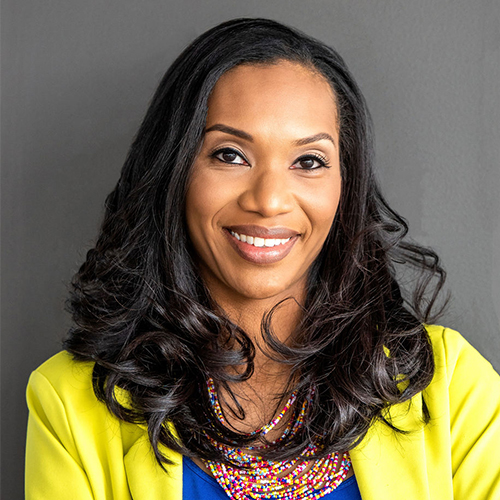
View Details / Enroll
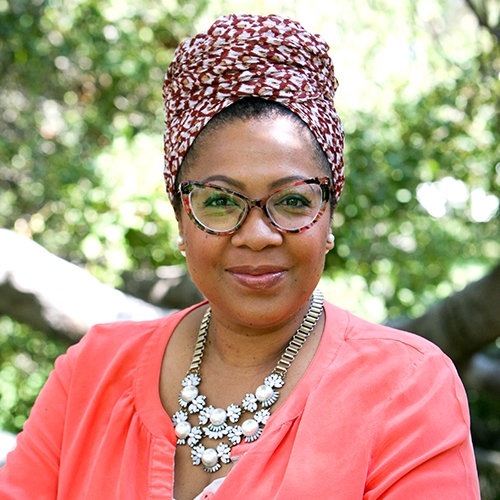

Nekisha Killings is an equity strategist, internationally board-certified lactation consultant, and maternal and child health advocate who speaks, teaches, and facilitates on topics related to equity and dismantling bias across various sectors.
When she is not home educating 4 future world changers, she acts as a Director of Equity, Inclusion and Belonging at Lactation Education Resources and consults organizations on creating and implementing strategies to better support marginalized communities.
Nekisha holds a Masters in Public Health and penned the chapter titled Cultural Humility in the latest Core Curriculum for Interdisciplinary Lactation Support text. Nekisha is on a mission to normalize brown breasts and nipples in health education, thereby better equipping healthcare providers to accurately assess and treat people of color.
Nekisha's work is rooted in a compassion and candor that could only have been cultivated in years of supporting new parents during their first days of parenthood. Nekisha is an active duty military spouse who has been awarded the Spouse of the Year designation for her volunteer efforts supporting families.
Topic: Breast Assessment and Non-White Skin Tones - [View Abstract]
Topic: BreastSide Manner: A Patient-Centered Approach to Lactation Support - [View Abstract]
Topic: Marching Orders: Developing Practical and Impactful Care Plans - [View Abstract]
Is a red spot always a key indicator of mastitis? What about the deep purple trademark of vasospasm? How does eczema present on non-white skin? Performing a standard breast assessment may cause clinicians to overlook or misidentify key indicators of maladies in patients that are not fair skinned. Learn how you can improve your assessments and familiarize yourself with other ways to identify common conditions in patients populations that may not have been featured in your textbooks.

Breast Cancer During Breastfeeding and Breastfeeding After Breast Cancer

Fedro Peccatori is a medical and gynecologic oncologist whose clinical activities mainly include diagnosis and treatment of breast cancer, gynecological malignancies and tumors of young adults. He is Director of the Fertility and Procreation Unit within the Division of Gynecologic Oncology at the European Institute of Oncology, Milan, Italy.
His research projects deal with fertility preservation and counselling in young oncological patients, pregnancy associated cancers, pharmacological protection of ovarian function during chemotherapy, molecular characterization breast and gynecological malignancies.
He’s part of the ESMO task force Adolescent and Young Adult and ESMO faculty member for breast cancer. At present, he acts as Scientific Director at the European School of Oncology (ESO), where he’s in charge of organizing and supervising international courses and masterclasses on different oncological issues.
He has been interested in breastfeeding in cancer patients since 2009 and has published a number of papers on this issue.
Breast cancer is the most frequent malignant tumor during reproductive age.
Around 1/10000 nursing mothers are diagnosed with breast cancer every year. In this rare and difficult situation, patients and healthcare providers should be knowledgeable about the prognostic and practical implications of such an event. Chemotherapy may pass into the milk and breastfeeding is usually contraindicated during chemotherapy. Weaning should be gradual, to avoid breast inflammation and mastitis. A thorough psychological support should be given to the nursing mother to help her into the oncological trajectory.
On the other hand, the number of young breast cancer survivors is increasing and more and more patients enquire about the possibility of subsequent pregnancies and breastfeeding. The breast treated with conservative surgery and subsequent radiation is less responsive to hormonal stimulation, with reduced glandular hyperplasia and hypertrophy. Milk production is usually decreased in the previously affected breast and surgery may affect duct integrity. Nonetheless, each breast has the capability to self regulate milk production according to the baby’s suckling habits, and many evidences support the notion that one breast is enough. Specific education programs should focus on adequate baby positioning, correct latching and reinforcement of the advantages of on demand breastfeeding. Data from our group demonstrate the feasibility of breastfeeding after breast cancer, but qualified lactation counseling to support patients and caregivers is needed.

View Details / Enroll




